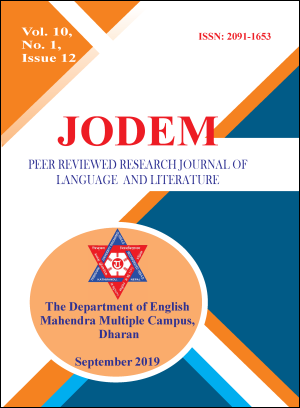Making Phonemic Inventories of Nepali Mother Tongues and its Implications to English Language Teaching: A Case of Dungmali
DOI:
https://doi.org/10.3126/jodem.v10i1.30405Keywords:
ELT, Language learning, phonemic inventory, mother tongues, vowels and consonantsAbstract
This article presents the idea why phonemic systems of students' mother tongues should be studied while teaching English? As Nepal is a rich country in terms of linguistic diversity, students having different linguistic backgrounds attend the English language classrooms every day. However, their perception of learning English language is different to each. They think English is very hard, talent one only masters it. Teachers also are not aware on vast distinctions of sound systems of students' mother tongues with English that affects language learning hugely. This gap is one of the major issues of English language teaching in Nepal. This paper attempts to analyze this issue by making phonemic inventory of one of the Nepali mother tongues of Nepal; Dungmali. It emphasizes the importance of phonemic inventories with reasons in reference to English Language Teaching.
Downloads
Downloads
Published
How to Cite
Issue
Section
License
© Department of English, Mahendra Multiple Campus, Dharan, Nepal

